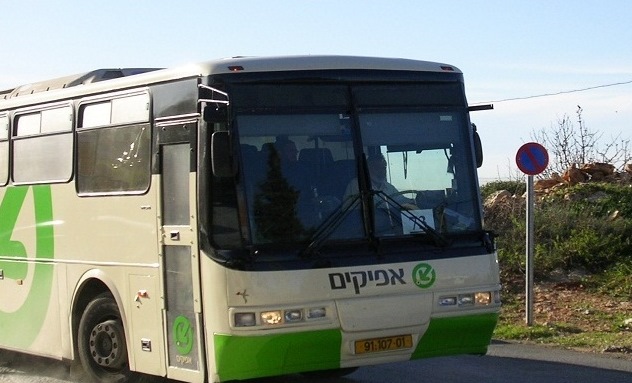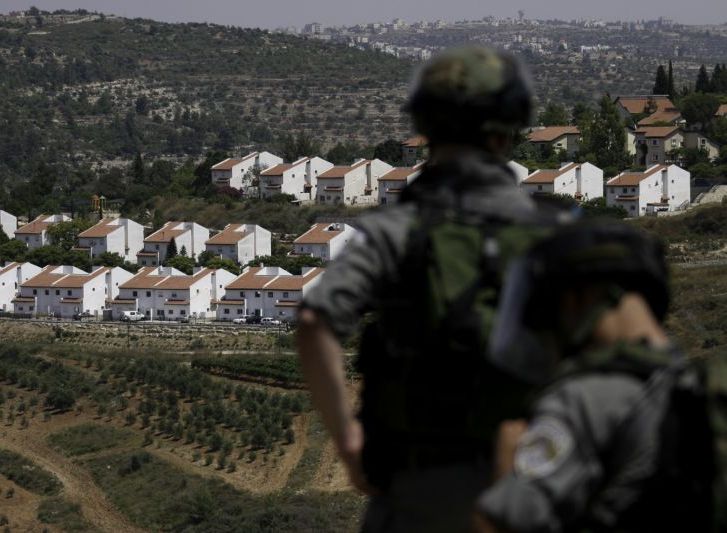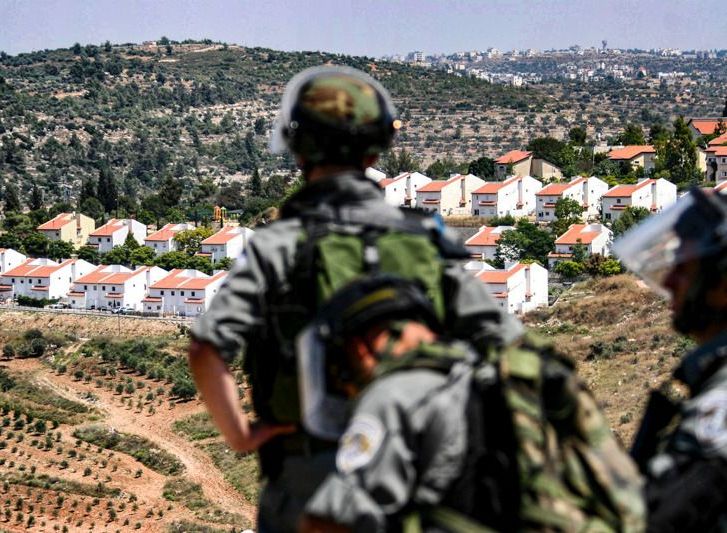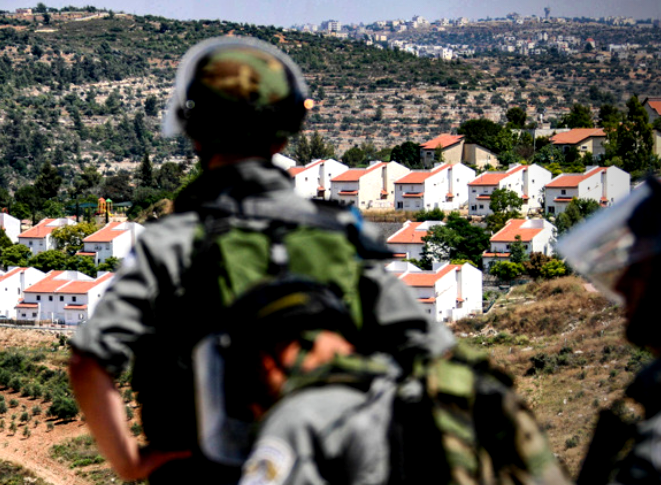NGO submission to the UN Security Council on Implementation of Resolution 2334
NGO submission to the UN Security Council on Implementation of Resolution 2334
Adalah – The Legal Center for Arab Minority Rights in Israel
18 June 2018
[CLICK HERE to read this briefing paper in PDF format]
This submission by Adalah – The Legal Center for Arab Minority Rights in Israel primarily addresses operative Paragraph 2 of Resolution 2334, in which the Security Council:
“Reiterates its demand that Israel immediately and completely cease all settlement activities in the occupied Palestinian territory, including East Jerusalem, and that it fully respect all of its legal obligations in this regard.”
Summary of Findings
Since the adoption of Resolution 2334, Israel has disregarded this demand and accelerated its settlement expansion plans on occupied Palestinian land:
- The Israeli Knesset continues to legislate new laws that de facto annex the settlements to Israel and allow for the confiscation of additional tracts of private Palestinian land.
- In its response to petitions to the Israeli Supreme Court against the most dangerous of these new laws, the Settlements Regularization Law (2017), the Government of Israel expressed its official position that Israel is not bound by international law
- Since January 2017, Israel has published 43 commercial bids for new buildings in existing settlements; 5,329 housing units; and 8 commercial and service areas.
- In February 2017, Israel additionally announced that it was building an entirely new, large settlement in the West Bank of 5,500 housing units that is not an outgrowth of a pre-existing settlement.
Recommendations for Implementation
Adalah calls on members of the United Nations Security Council to:
- Maintain the well-established international legal position that all settlement and settlement-related activity in the Occupied Palestinian Territory, including East Jerusalem is illegal. This requires clear public condemnation of all new, recent settlement activity;
- Ensure objective reporting on Israel’s settlement policy throughout the UN system, including by securing a commitment to written reports by the Secretary-General on the implementation of UNSC resolution 2334;
- Take concrete action to stop all settlement activity, including outpost authorization / construction, transfer of Israeli settlers, land confiscation, home demolition, and displacement of Palestinian civilians by the Israeli government;
- Insist on full implementation of resolution 2334 and hold the Israeli government accountable for settlement activity and measures that serve to undermine prospects of peace and a viable Palestinian state.
Detailed findings
- New legislation that consolidates Israel’s settlements and de facto annexes the land they stand on to Israel
The Israeli Government has promoted new laws in the Knesset that de facto annex Palestinian land in the West Bank, including East Jerusalem, to Israel. Such legislative efforts have accelerated rapidly in 2017 and 2018, in a grave breach of the right to self-determination of the Palestinian people in its homeland. The most notable new “annexation laws” and bills are the following:
The Settlements Regularization Law (Law for the Regularization of Settlement in Judea and Samaria) – 2017:[1] Enacted by the Knesset on 6 February 2017, this new law allows the State of Israel to expropriate vast tracts of private Palestinian lands in the West Bank for the purposes of settlement construction, in violation of international law and of Palestinians’ property rights. The law establishes a mechanism through which Israeli settlements built on private Palestinian land in the West Bank can be “legalized” or “regularized” – from the perspective of domestic Israeli law – via retroactive expropriation, planning, and zoning regulations. It instructs the authorities in the area to appropriate the land, or the rights to use and hold it, if there has been “settlement” on it that was carried out “in good faith” or “received the state’s consent for its construction” (Article 3).
The Government of Israel’s official response to the Israeli Supreme Court petition[2] from 21 August 2017 essentially confirms the state’s application of Israeli civil law, rather than international humanitarian law, to a territory that is occupied and administered by the Israeli military. In its 156-page response to the Court, the government argues that: [3]
- Jewish settlement in the West Bank fulfills the values of Zionism;
- The Law is justified by its political, national and social purposes;
- It is the “natural right” of Jewish Israelis to live in this area;
- The Israeli legislator (the Knesset) is the source of the authority of the military commander in the West Bank, and that this legislator is not subject in any way to international law;
- Israeli settlers in the West Bank are a local civilian population under international law whose needs must be addressed by the Military Commander.
This newly-articulated position by the Government of Israel stands in blatant contravention of international law and the international consensus in this matter.
2018 Amendment to the Basic Law: Jerusalem, Capital of Israel (1980):[4] The Knesset amended this basic law on 2 January 2018 to mandate a special majority of 80 of 120 Knesset Members in order to approve the relinquishment of any part of Jerusalem. The aim of the law it to make it highly unlikely that any future Government of Israel would be able to secure authorization from the Knesset to return any part of East Jerusalem to the Palestinians in a potential peace accord between the two sides, and thus to consolidate Israel’s grip on this occupied enclave, which the Palestinians regard as the future capital of their state.
The Basic Law: Jerusalem, Capital of Israel (1980), states that, “Jerusalem, complete and united, is the capital of Israel” (Art. 1). The Security Council previously found in its Resolution 478 of 20 August 1980 that the enactment of the Basic Law “constitutes a violation of international law and does not affect the continued application of the Geneva Convention relative to the Protection of Civilian Persons in Time of War, of 12 August 1949, in the Palestinian and other Arab territories occupied since June 1967, including Jerusalem.”[5] The Basic Law was previously amended in 2000, so as to provide a legal and constitutional defense for the application of Israeli law in East Jerusalem and to also limit the ability to change the city’s “area” and jurisdiction.
A slew of other bills are at various stages of the legislative process similarly seek to de facto annex Israeli settlements in the West Bank to Israel, either en masse or at the level of single settlements or settlement blocs. As the extensive list of enacted and proposed legislation clearly demonstrates, the Knesset has been particularly active in its attempts to annex Palestinian land in the West Bank. They do this via several means, including the application of Israeli domestic law to the settlements, as does a bill which aims to apply the entire body of Israeli domestic law to the Israeli settlements in the West Bank;[6] bills that apply Israeli domestic law, sovereignty, jurisdiction and administration throughout the West Bank;[7] and other bills that seek to apply specific laws to the West Bank, e.g. the Law and Administration Ordinance[8] and Israel’s planning and building laws.[9] It should be stressed in this regard that Israel’s annexation of East Jerusalem in 1967 was achieved through the same mechanism, i.e. the application of Israel domestic law to the area.
The Negev Development Authority Bill[10] seeks to amend the Negev (Naqab) Development Authority Law seeks to give settlements equal legal status to that of communities in the Naqab, effectively annexing parts of the southern West Bank to Israel. According to the proposed amendment, the law is to be applied to certain areas of the West Bank, thereby rendering the legal status of settlements equal to that of towns and villages in the Naqab region of southern Israel. As well as contradicting provisions of Israeli domestic law, the bill also violates IHL and stands to exacerbate the human rights violations that accompany the establishment and existence of the settlements. The bill has been designated for preliminary discussion.
Status of the World Zionist Organization and the Jewish Agency for Israel Law (Amendment - Management and Allocation of Land in the Judea and Samaria Area by the Settlement Division) Bill: A bill that recently passed a preliminary reading before the Knesset, on 13 June 2018, seeks to transfer authority for the administration of land in the West Bank from the Custodian of Abandoned and State Property to Zionist organizations - the Jewish National Fund and the World Zionist Organizations - which serve the political, Zionist interests of Israel, in violation of IHL.
The “Jerusalem and its Daughters” Bill[11] would, if enacted, annex a ring of West Bank settlements – Beitar Illit, Ma’ale Adumim, Givat Ze’ev, Gush Etzion, and Efrat – that contain over 230,000 settlers to the Jerusalem municipality, and impose Israeli civil law in these occupied areas. The bill violates IHL, as it a large-scale confiscation of property belonging to a protected population. The bill allows for the seizure of occupied territory, a change in the designation of this land, and the establishment of new facts on the ground, which alter the laws that apply to these areas. It would cut off these areas from the rest of the West Bank, violate the right of Palestinian residents to make full use of their land, and limit freedom of movement and access for Palestinians. The bill has been designated for preliminary discussion before the Knesset. A substantively similar law is named the Greater Jerusalem Bill.[12]
At least 20 other bills aim to apply Israeli domestic law to the settlements one settlement or one bloc at a time. A few examples are bills that specifically target the Jordan Valley settlements,[13] Hebron and surrounding settlements,[14] Gush Etzion,[15] Gush Menashe,[16] the West Samaria Bloc,[17] the Central Samaria Bloc,[18] the Central Binyamin Region,[19] Ariel,[20] Modi’in,[21] and Ma’ale Adumim,[22] in addition to the “Ma’ale Adumim Sovereignty” Bill[23] and a bill to apply Israel’s planning and building laws to Ma’ale Adumim.[24]
Newly-proposed legislation referred to as the Security Fence Bill[25] seeks to advance the completion of Israel’s Separation Wall, in particular in the area of South-West Hebron; the route of the Wall does not follow the Green Line in most locations but cuts deep into occupied Palestinian territory, and its completion in the area in question would entail the annexation of additional Palestinian land.
- Announcement of new settlement construction by the Israeli Government
On 31 January 2017, Prime Minister Binyamin Netanyahu announced the construction of a major new settlement in the West Bank to consist of 5,500 housing Units. The plan was approved by the Government on 4 February 2018 via Governmental Decision 3515,[26] which determines that the new settlement will be located in the Shomron Regional Council. The decision additionally states that the settlement will be established “in accordance with the Government’s policy of strengthening the settlements”, and authorizes the Israeli Minister of Security to initiate all necessary actions in order to begin work on the settlement.
- Bids published by the Government of Israel since the publication of UNSC Resolution 2334 for new settlement construction in the West Bank
The Israeli government is also pursuing various policies to expand settlements and designate borders in the occupied West Bank. A primary example is the publication of open bids offering “state land” in the West Bank by the Israel Land Authority (ILA), the Israeli public authority responsible for administering “state land”. The ILA has no legal authority in the 1967 Occupied Territories.
According to ILA data, since the beginning of 2017 a total of 43 commercial bids for new settlement construction in the West Bank have been published, including for the building of 5,329 housing units and 8 commercial and service areas (as of 13 June 2018). Settlements that are set for major expansion as a result of the bids are:
- Beitar Illit (885 housing units)
- Ariel (842 housing units)
- Alfei Menashe (776 housing units)
- Beit Arye (630 housing units)
- Ma’ale Adumim (571 housing units)
- Givat Ze’ev (552 housing units)
- Beit El (296 housing units)
The full list of bids published between 1 January 2017 and 13 June 2018 is annexed to this document. Both the fact and scale of the ongoing settlement construction revealed by these bids indicates that the Israeli Government is completely disregarding the demand made in Paragraph 2 of UNSC Resolution 2334 for it to immediately and completely cease all settlement activities, in addition to other provisions of the Resolution, in letter and in spirit.
Notably, this approved settlement construction only includes construction to be carried out via state bids. The full scale of approved settlement construction is larger, and includes construction that is carried out via other means, including structures that are retroactively “legalized” – under Israeli domestic law only – through the Settlement Regularization Law (2017) and otherwise approved under governmental policies and the policies of Zionist organizations such as the Jewish Agency and the World Zionist Organization.
In these and other cases, regular Israeli governmental agencies such as the ILA are being authorized to operate to facilitate settlement construction in the occupied West Bank, including East Jerusalem. An additional example is the Interior Ministry’s “borders committee”, which was established in March 2017 and charged with advice on the jurisdictional boundaries of Israeli settlements in the West Bank. The appointment of an Israeli ministerial committee that operates in the OPT, according to Israeli domestic law, amounts to a de facto annexation of West Bank land to Israel in gross violation of international law.
Increasingly, Israel is granting state bodies that operate in Israel within the 1967 borders expanded jurisdictions to operate on both sides of the Green Line, using similar tools and methods, in utter disregard of the occupied status of the West Bank, the interests of the protected Palestinian population under occupation, and in clear violation its duties as an occupying power under IHL. The operations of these Israeli governmental bodies in the West Bank constitutes an additional form of de facto annexation of the occupied Palestinian territories.
Israeli settlement bids issued since United Nations Security Council Resolution 2334 (December 2016)
Compiled by Adalah – The Legal Center for Arab Minority Rights in Israel
SOURCE: Israel Land Authority[i] - Updated to 13 June 2018
|
Location |
Bid number |
Content of bid |
Date of bid’s publication |
Closing date of bid |
|
YS/2018/6 |
50 housing units |
January 11, 2018 |
July 2, 2018 |
|
YS/2018/7 |
116 housing units |
January 10, 2018 |
July 23, 2018 |
|
YS/2018/8 |
430 housing units |
January 10, 2018 |
July 2, 2018 |
|
YS/2018/9 |
21 housing units |
January 11,2018 |
July 9, 2018 |
|
YS/2018/10 |
Commerce and services |
January 10, 2018 |
August 6, 2018 |
|
YS/2018/11 |
23 housing units |
January 10, 2018 |
July 16, 2018 |
|
YS/2018/12 |
Commerce and services |
January 10, 2018 |
July 30, 2018 |
|
YS/2018/13 |
Commerce and services |
January 10, 2018 |
July 23, 2018 |
|
YS/2018/14 |
Commerce and services |
January 10, 2018 |
July 23, 2018 |
|
YS/2018/15 |
60 housing units |
January 11, 2018 |
June 18, 2018 |
|
YS/2018/16 |
31 housing units |
January 11, 2018 |
August 13, 2018 |
|
YS/2018/17 |
22 housing units |
January 10, 2018 |
July 23, 2018 |
|
YS/2018/18 |
70 housing units |
January 10, 2018 |
June 25, 2018 |
|
YS/2018/19 |
60 housing units |
January 10, 2018 |
June 25, 2018 |
|
YS/2018/158 |
239 housing units |
May 30, 2018 |
July 30, 2018 |
|
YS/2018/159 |
170 housing units |
May 30, 2018 |
Sept. 17, 2018 |
|
YS/2018/160 |
250 housing units |
May 30, 2018 |
Sept. 3, 2018 |
|
YS/2018/161 |
44 housing units |
May 30, 2018 |
August 27, 2018 |
|
YS/2018/162 |
459 housing units |
May 30, 2018 |
July 30, 2018 |
|
YS/2017/14 |
552 housing units |
January 25, 2017 |
June 25, 2018 |
|
YS/2017/15 |
46 housing units |
January 25, 2017 |
October 23, 2017 |
|
YS/2017/16 |
44 housing units |
January 25, 2017 |
February 19, 2018 |
|
YS/2017/19 |
22 housing units |
January 25, 2017 |
August 20, 2018 |
|
YS/2017/21 |
3 housing units |
January 25, 2017 |
June 5, 2017 |
|
JE/2017/22 |
130 housing units |
January 26, 2017 |
May 8, 2017 |
|
YS/2017/23 |
143 housing units |
January 25, 2017 |
July 23, 2018 |
|
YS/2017/35 |
Commerce |
February 16, 2017 |
August 28, 2017 |
|
YS/2017/36 |
Industry and commerce |
February 16, 2017 |
July 10, 2017 |
|
YS/2017/37 |
Commerce, services, and public buildings |
February 16, 2017 |
July 30, 2018 |
|
YS/2017/73 |
405 housing units |
March 30, 2017 |
July 30, 2018 |
|
YS/2017/74 |
65 housing units |
March 30, 2017 |
July 30, 2018 |
|
YS/2017/75 |
22 housing units |
March 30, 2017 |
June 21, 2018 |
|
YS/2017/76 |
50 housing units |
March 30, 2017 |
February 12, 2018 |
|
YS/2017/77 |
70 housing units |
March 30, 2017 |
February 12, 2018 |
|
YS/2017/79 |
472 housing units |
March 30, 2017 |
June 25, 2018 |
|
YS/2017/80 |
226 housing units |
March 30, 2017 |
July 9, 2018 |
|
YS/2017/82 |
478 housing units |
March 30, 2017 |
June 25, 2018 |
|
YS/2017/83 |
152 housing units |
March 30, 2017 |
August 20, 2018 |
|
YS/2017/84 |
52 housing units |
March 30, 2017 |
February 5, 2018 |
|
YS/2017/115 |
56 housing units |
May 11, 2017 |
July 23, 2018 |
|
JE/2017/146 |
Section of shared land plot (closed bid) |
June 19, 2017 |
August 21, 2017 |
|
JE/2017/192 |
Commerce |
July 25, 2017 |
October 23, 2017 |
|
YS/2017/279 |
296 housing units |
October 17, 2017 |
May 14, 2018 |
Total: 43 bids; 5,329 housing units; 8 commercial and service areas; 1 section of shared land plot (closed bid)
Bid number codes
YS: West Bank (Yehuda (Judea) and Samaria)
JE: Jerusalem
[CLICK HERE to read this briefing paper in PDF format]
[1] The text of the law (English translation): https://www.adalah.org/uploads/uploads/Settlement_Regularization_Law_English_FINAL_05032017.pdf
[2] Adalah, together with the Jerusalem Legal Aid and Human Rights Center (JLAC) and Al Mezan Centre for Human Rights petitioned the Supreme Court of Israel against the law on 8 February 2017 on behalf of 17 Palestinian local councils. See HCJ 1308/17, Silwad Municipality, et. al. v. The Knesset, et. al (case pending). Israeli human rights organizations Yesh Din, ACRI, and Peace Now also petitioned against the law.
[3] Adalah position paper, “The Responses of the Government of Israel and the Attorney General in the Settlements Regularization Law Case,” January 2018: https://www.adalah.org/uploads/uploads/Adalah_Responses_of_the_Government_and_AG_to_Settlements_Law_Final_English_17.1.2018.pdf
[4] The text of the law (Hebrew): http://fs.knesset.gov.il//20/law/20_lsr_457849.pdf
[5] Additional Security Resolutions relevant to the status of Jerusalem are 242 (1967), 252 (1968), 267 (1969), 271 (1969), 298 (1971), 338 (1973), 446 (1979), 452 (1979), 465 (1980), 476 (1980), 478 (1980), 1397 (2002), 1515 (2003), and 1850 (2008).
[6] Bill no. P/2574/20, dated 2 February 2016.
[7] Bill no. P/5104/20, dated 5 February 2018, and bill no. P/5105, dated 5 February 2018.
[8] Bill no. P/3046/20, dated 20 June 2016.
[9] Bill no. P/2226/20, dated 23 November 2015.
[10] Bill no. P/4014/20, dated 14 March 2017.
[11] Bill no. P/4109/20, dated 20 March 2017.
[12] Bill no. P/4158/20, dated 23 March 2017.
[13] Bill no. P/185/20, dated 5 May 2015, bill no. P/3598/20, dated 27 December 2016, and bill no. P/4041/20, dated 20 March 2017, bill no. P/4993/20, dated 15 January 2018.
[14] Bill no. P/156/20, dated 5 May 2015.
[15] Bill no. P/3947/20, dated 4 May 2015, bill no. P/176/20, dated 5 May 2015, and bill no. P/4039/20, dated 7 March 2017.
[16] Bill no. P/171/20, dated 5 May 2015.
[17] Bill no. P/182/20, dated 5 May 2015.
[18] Bill no. P/187/20, dated 5 May 2015.
[19] Bill no. P/191/20, dated 5 May 2015.
[20] Bill no. P/3002/20, dated 23 May 2016, and bill no. P/4040/20, dated 20 March 2017, and bill no. P/179/20, dated 5 May 2018.
[21] Bill no. P/260/20, dated 5 May 2015.
[22] Bill no. P/169/20, dated 5 May 2015.
[23] Bill no. P/3244/20, dated 1 August 2016.
[24] Bill no. P/2886/20, dated 30 March 2016.
[25] Bill no. P/3844/20, dated 13 December 2017.
[26] Governmental Decision 3515, 4 February 2018 (Hebrew): https://www.gov.il/he/Departments/policies/dec3515_2018
[i] Israel Land Authority, Publication of Land Bids, ILA website, accessed on 13 June 2018 (Hebrew): http://land.gov.il/Land_Tenders/Pages/Tenders.aspx


















